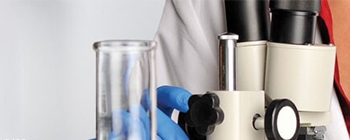Learn More
TCR gamma/delta Monoclonal Antibody (B1.1), FITC, eBioscience™, Invitrogen™
Mouse Monoclonal Antibody
$129.00 - $334.00
Specifications
| Antigen | TCR gamma/delta |
|---|---|
| Clone | B1.1 |
| Concentration | 5 μL/Test |
| Applications | Flow Cytometry |
| Classification | Monoclonal |
Description
Description: The B1.1 monoclonal antibody reacts with the human gamma delta TCR complex. The gamma delta TCR is expressed by a small subset of T cells in the thymus, peripheral lymphoid tissues, intestinal epithelium, and epidermis. The exact specificity, ligand and function of gamma delta TCR-bearing T cells are not yet fully understood; it is suggested that these cells recognize bacterial ligands and some tumor cells in the context of MHC class I-like gene products and play a role in regulation of the immune response and during bacterial infection. This monoclonal can be used as a phenotypic marker for gamma delta TCR-expressing T cells. Applications Reported: The B1.1 antibody has been reported for use in flow cytometric analysis. Applications Tested: The B1.1 antibody has been pre-titrated and tested by flow cytometric analysis of normal human peripheral blood cells. This can be used at 5 μL (4 μg) per test. A test is defined as the amount (μg) of antibody that will stain a cell sample in a final volume of 100 μL. Cell number should be determined empirically but can range from 10^5 to 10^8 cells/test. Excitation: 488 nm; Emission: 520 nm; Laser: Blue Laser. Filtration: 0.2 μm post-manufacturing filtered.
TCR gamma/delta (T-cell receptor gamma/delta) are specialized T-cells in the immune system. The ability of T cell receptors (TCR) to discriminate foreign from self-peptides presented by major histocompatibility complex (MHC) class II molecules is essential for an effective adaptive immune response. TCR recognition of self-peptides has been linked to autoimmune disease. Mutant self-peptides have been associated with tumors. Engagement of TCRs by a family of bacterial toxins know as superantigens has been responsible for toxic shock syndrome. Autoantibodies to V beta segments of T cell receptors have been isolated from patients with rheumatoid arthritis (RA) and systemic lupus erythematosus (SLE). The autoantibodies block TH1-mediated inflammatory auto-destructive reactions and are believed to be a method by which the immune system compensates for disease. Most human T cells express the TCR alpha-beta and either CD4 or CD8 molecule (single positive, SP). However, a small number of T cells lack both CD4 and CD8 (double negative, DN). Increased percentages of alpha-beta DN T cells have been identified in some autoimmune and immunodeficiency disorders. Gamma-delta T cells are primarily found within the epithelium. They show less TCR diversity and recognize antigens differently than alpha-beta T cells. Subsets of gamma-delta T cells have shown antitumor and immunoregulatory activity.Specifications
| TCR gamma/delta | |
| 5 μL/Test | |
| Monoclonal | |
| Liquid | |
| RUO | |
| PBS with 0.2% BSA and 0.09% sodium azide; pH 7.2 | |
| RGD1311300; similar to T cell receptor V delta 6; T cell receptor gamma locus; T3/TCR complex; TCR delta gamma; TCR gamma/delta; TCR-CD3 complex; Tcrg; Trg; Trg@ | |
| TRD, Trg | |
| Primary | |
| 4° C, store in dark, DO NOT FREEZE! |
| B1.1 | |
| Flow Cytometry | |
| FITC | |
| Mouse | |
| Human | |
| 0 | |
| 6964, 6965 | |
| IgG1 κ | |
| Affinity chromatography | |
| Antibody |
For Research Use Only.



